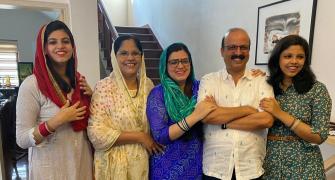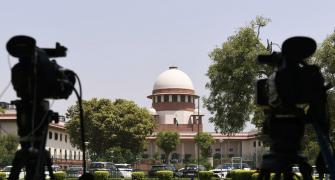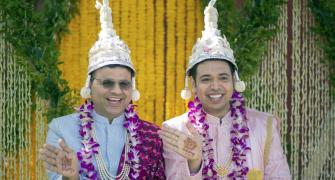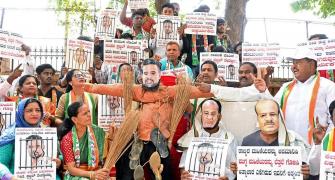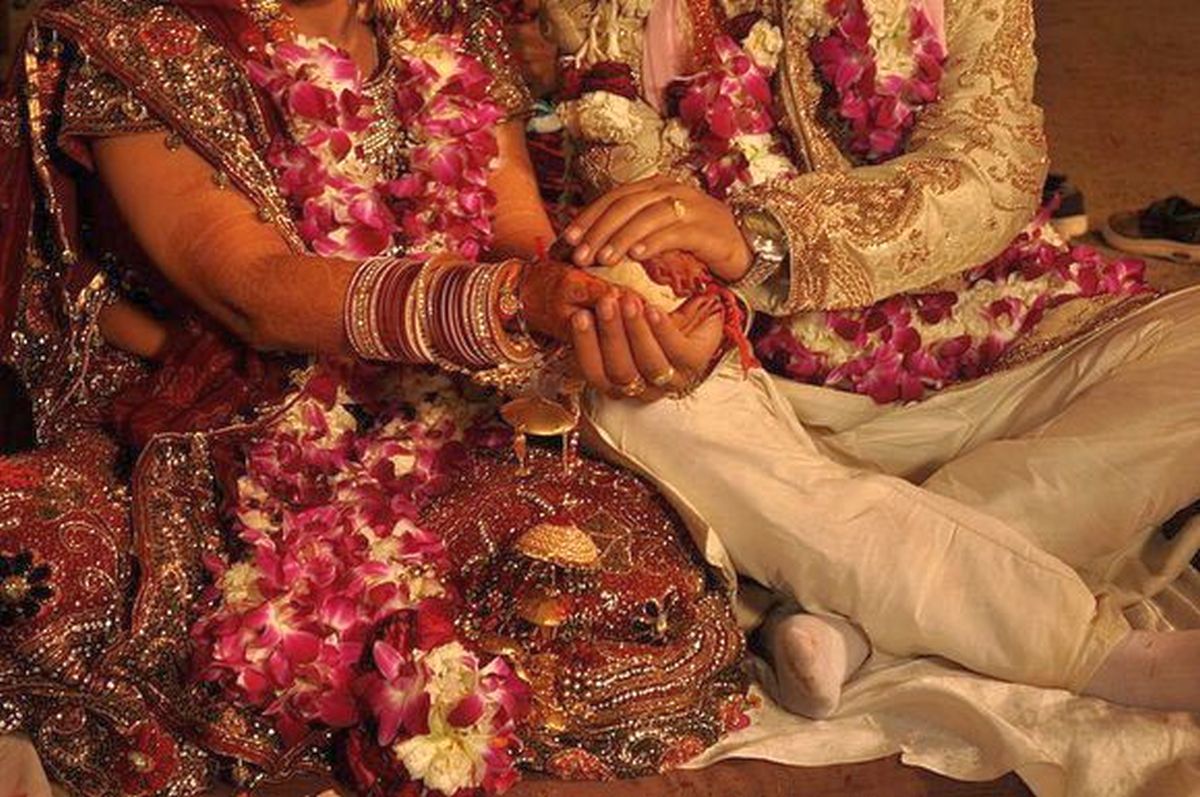Children born under the Special Marriage Act have equal rights over both parents' properties, regardless of their parents' religion or background.

The estranged wife of a leading industrialist is currently seeking legal counsel regarding her alimony rights, according to media reports.
While the wife is Parsi, the husband is Hindu. Their marriage was solemnised under the Special Marriage Act, and not the Hindu Marriage Act.
Says Ankush Satija, senior associate at Kred-Jure, "The Special Marriage Act was enacted in 1954 to solemnise and recognise marriages between individuals from different faiths, communities, or religions, and to regulate inter-faith marriages, separation, and other related issues."
In the case of some religions, conversion is required if a marriage is to be solemnised under its laws.
Says Ekta Rai, advocate, Delhi high court, "Many people are not amenable to this condition. It also goes against one's fundamental rights.
"Hence, there was a need to come up with an Act that permits the marriage of two individuals without having to convert to the religion of either of the spouses."
The Hindu Marriage Act (1955) regulates the practices and procedures for marriages between persons who are Hindu by religion.
Says Shashank Agarwal, advocate, Delhi high court, "Under the Special Marriage Act, the parties need not necessarily follow any religious ceremony, whereas under the Hindu Marriage Act, the parties have to necessarily follow their religious or customary ceremonies."
Alimony and maintenance under the Special Marriage Act
Permanent alimony and maintenance refer to the ongoing financial support provided to a spouse after their marriage gets dissolved.
Sections 36 and 37 of the Special Marriage Act address the critical aspects of alimony and maintenance.
Says Singh, "Section 36 deals with interim support, ensuring that a wife, facing financial constraints during legal proceedings, can seek financial assistance from her husband."
Section 37 addresses permanent alimony and maintenance.
Says Agarwal: "The Special Marriage Act allows the court to instruct the husband to ensure the wife's financial support. This can be a lump sum or regular payments for the wife's lifetime."
The Special Marriage Act differs from the Hindu Marriage Act in one vital aspect.
Says Pooja D Raval, associate, Singhania & Co, "Under Section 37 of the Special Marriage Act, only the wife can claim permanent alimony and maintenance from the husband, whereas according to Section 25 of the Hindu Marriage Act, either party -- the husband or the wife -- can claim permanent alimony and maintenance."
How alimony is decided
Alimony and maintenance depend on the circumstances of each case.
Says Punyam Bhutani, associate, SKV Law Offices, "There is no prescribed formula in the law. The income of the spouses, their standard of living, and financial status are considered by the court."
Once the wife remarries, the alimony or maintenance order can be changed, altered, adjusted or cancelled. The same can be done if there is a change in circumstances.
Succession rights under the Special Marriage Act
Children born under the Special Marriage Act have equal rights over both parents' properties, regardless of their parents' religion or background.
Says Satija, "Rights pertaining to the succession of property of a person married under this Act, or that of their children, are governed by the Indian Succession Act, 1925.
"The personal laws of succession of the respective parties cease to exist, subject to certain exceptions."
The rules, however, are different when two people from the same religion get married under the Special Marriage Act.
Says Nidhi Singh, partner, IndiaLaw, "The Special Marriage Act also provides that when a Hindu, Buddhist, Jain, or Sikh person gets married to another person belonging to the same religion, but under the provisions of the Special Marriage Act, such persons are not barred from the personal laws of Hinduism, Buddhism, Jainism or Sikhism in the matter of succession.
"Thus, the same will apply to the children from such marriages."
Section 26, which deals with succession under the Special Marriage Act, recognises the validity of children born to people married under the Special Marriage Act.
The children retain ownership of the property even after the marriage is declared null and void.
Says Mayank Arora, partner, Chambers of Bharat Chugh, "The offspring of such marriages are not entitled to ancestral property. They can only obtain a share of their parents' self-owned or inherited property."

Feature Presentation: Ashish Narsale/Rediff.com


